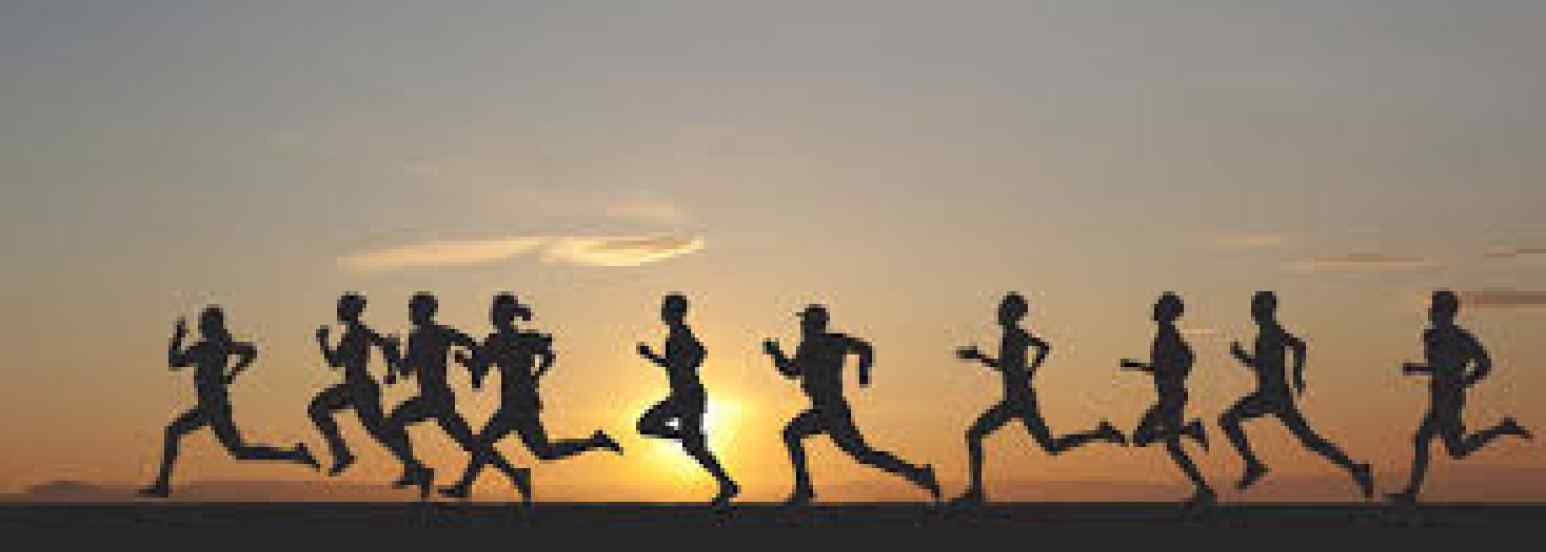Researchers in the UK have identified a synergistic feedback loop between improved executive function and regular physical activity that is bidirectional. The more regularly you exercise, the greater your executive function; the greater your executive function, the more likely you are to exercise...and so on, and so on. (Executive function generally includes such traits as cognitive flexibility, working memory, the ability to set and meet goals, resist impulsivity, problem solve, etc.)
Conversely, the researchers found that individuals with poor executive function exhibited lower rates of participation in physical activity. Additionally, older adults who stayed physically active on a regular basis tended to retain higher levels of executive function throughout their lifespan.
This November 2016 study, by researchers at the University of Aberdeen, the University of Stirling and the University College Dublin, used data collected from 4,555 adults through the English Longitudinal Study of Aging.
Another interesting discovery of this study is that once someone becomes actively engaged in the bidirectional feedback loop of better executive function and regular physical activity—the more likely he or she is to exert greater self-control.
Exercise Can Fortify the Self-Control Needed For “Empowered Equanimity”
In tumultuous and emotional times, it’s easy to lose your cool. Equanimity is defined as, “mental calmness, composure, and evenness of temper, especially in a difficult situation.” Jackie Robinson—who was the first African-American to play Major League Baseball in the United States—is a perfect example of athleticism and “empowered equanimity” coming together.
Before signing Jackie Robinson to play for the Dodgers in 1945, the team’s general manager, Branch Rickey, made his intentions very clear: “I’m looking for a ballplayer with guts enough not to fight back.” Rickey was looking for someone who was both a phenomenal athlete and a ‘gentleman.’ He needed someone with the inner-strength and self-restraint to withstand intense hostility and aggression without becoming reactive, violent, or hateful.
Martin Luther King Jr. once said, “Someone must have sense enough and morality enough to cut off the chain of hate." In my mind, sports and athleticism are powerful tools for defeating bigotry through cooperation and community—not through hatred and violence.
Someone with an equanimous athletic mindset has the self-control to endure being challenged without violent physical retaliation, but rather via active and intelligent nonviolent civil disobedience. (To read more on this, check out my Psychology Today blog post, "Engaging the Powers That Be Through Daily Physicality")
As an example, because of his equanimity and self-control, Robinson was able to show that 'not fighting back' with physical violence was the ultimate testament of his true courage. And proof that he was not a feeble-minded coward. Jackie Robinson optimizes what I call “empowered equanimity” and has been a role model for me—in both sport and life—ever since I was a kid.
Your Vagus Nerve Facilitates the "Tend-and-Befriend" Response
Through your daily physicality, you have the power to control your psychological frame of mind and stay even keel. Remember, the next time you are feeling anger or rage...taking a few deep, diaphragmatic breaths will engage your vagus nerve, instantly lower your blood pressure, and calm you down.
Here's why: Your autonomic nervous system is comprised of two polar opposite systems that create a complementary tug-of-war which allows your body to maintain the inner-stability of homeostasis. The sympathetic nervous system is designed to rev you up like the gas pedal in an automobile—it thrives on adrenaline and cortisol and is part of the "fight-or-flight" response.
On the flip side, your parasympathetic nervous system is the polar opposite; it is responsible for the "rest-and-digest" and "tend-and-befriend" response. The vagus nerve is the commander-in-chief when it comes to your parasympathetic nervous system. Much like the brakes on your car, the parasympathetic nervous system is geared to slow down your body and calm your mind. It uses neurotransmitters such acetylcholine and GABA to lower your heart rate, blood pressure, and trigger a relaxation response.
In times of distress, remember: maintaining the healthy tone of your vagus nerve through diaphragmatic breathing activates the “tend-and-befriend” physiological response of your parasympathetic nervous system. This reduces the stress hormones of “fight-or-flight," which often trigger aggressive and violent responses. (To read more on the vagus nerve, check out my Psychology Today blog post, "The Neurobiology of Grace Under Pressure")
Creating an Exercise Prescriptive to Optimize Your Mindset of “Empowered Equanimity”
As a blueprint for The Athlete's Way, I designed a flexible workout paradigm that includes a weekly combination of varying amounts of three activities: aerobic activity, strength training, and mindfulness-meditation/yoga. Constantly fine-tuning this triad to fit the ever-changing circumstances of your daily life will optimize your psychological and physical well-being across a lifespan.
For example, if you need to 'rev yourself up' you should focus more on high-intensity cardio and strength training; if you need to 'calm yourself down' you should focus more on moderate-intensity aerobic activity, mindflullness-meditation, and yoga. It's very basic. But, on a neurobiological level, these three activities are a potent remedy for stress, anxiety, and becoming a rageaholic.
Increasingly, empirical research shows us that staying physically active is the most effective way to enter a feedback loop that helps to maintain a sound mind in a sound body while improving self-control. Spending time each week doing varying amounts of cardio, strength training, and meditation/yoga nurtures a life-affirming combination of resilience, chutzpah, and peace of mind.


